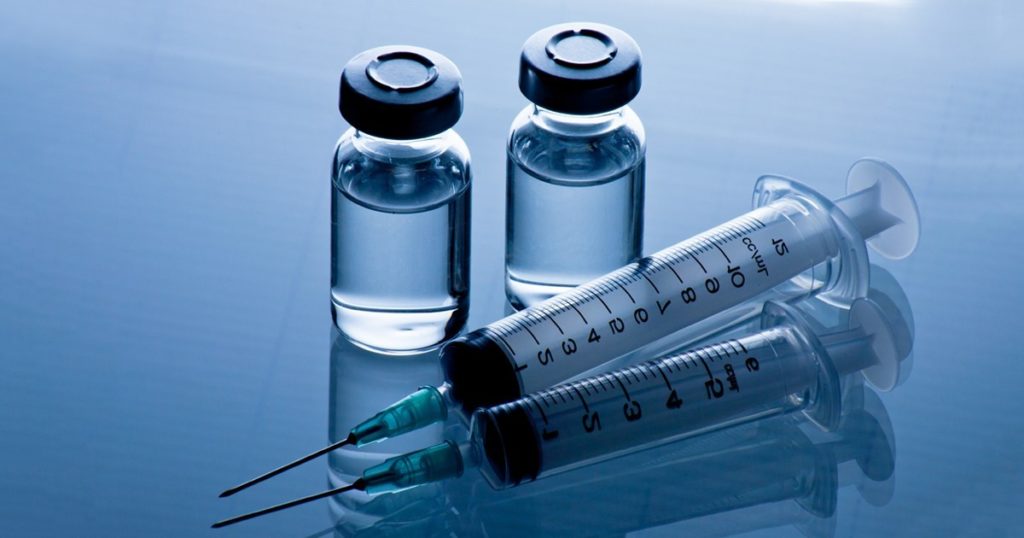
A vaccine teaches your body’s immune system to recognize and protect you against certain germs. Vaccines contain a small amount of a virus or bacteria that is known to cause a serious or deadly illness. The virus or bacteria has been weakened or killed so that it cannot make you sick. Your immune system learns this virus or bacteria and, if you are exposed to it later in life, your immune system can attack and kill it. This can prevent you from getting the illness that the virus or bacteria causes.
While there are many vaccines used to prevent serious illnesses, there are two types that can actually prevent cancer – the Hepatitis B vaccine and vaccines against human papillomavirus.
Hepatitis B Vaccine
- The hepatitis B virus causes liver disease, which can range from a mild illness (that you may not even know you have), to a lifelong illness that can lead to serious liver damage, liver failure and/or liver cancer.
- Hepatitis B is spread through contact with the blood, semen, or other body fluids of an infected person. It is not spread through water, sharing of eating utensils, coughing, or sneezing.
- The vaccine to prevent hepatitis B is a series of two to three shots, given over 1-4 months.
- It is recommended for all infants, for individuals under age 18 who have not been vaccinated, or anyone who has not been infected or already immune and is at high risk for infection.
HPV Vaccine
- Almost 100% of cervical cancers and 85% of anal cancers, as well as many vulvar, vaginal, penile, and head and neck cancers are caused by infection with the human papillomavirus or HPV. HPV also causes most pre-cancerous changes found with pap testing.
- HPV is a virus that can be transmitted through vaginal, anal, and/or oral sexual activity, through skin-to-skin contact and not necessarily intercourse. It is extremely common – an estimated 80% of sexually active people will contract it at some time in their lives.
- There are over 200 “strains” (types) of HPV! Some strains cause genital warts. About 12 strains can lead to cancer.
- In the US, the Gardasil 9 vaccine is used. This prevents against 9 strains of HPV that are linked to cancer. It is given in 2 or 3 doses, depending on the age you are when it is started. The HPV vaccine is recommended for all individuals ages 12-26.
- The vaccine will not prevent all HPV infections, nor can it treat an HPV infection. For this reason, women should still have cervical cancer screening per their provider’s recommendations.
- The vaccine is ideally given before an individual becomes sexually active and is likely to be exposed to HPV.
Both the Hepatitis B vaccine and the HPV vaccine can lower your risk of associated cancers caused by these viruses. In the US, it is estimated that somewhere between 850,000 and 2 million people have chronic Hepatitis B. The younger a person is when infected with hepatitis B, the greater chance it will become a chronic infection, so early vaccination is preferred. For example, nearly 90% of infants exposed to the virus will develop chronic Hepatitis B, but about 95% of exposed adults will recover and not develop a chronic infection.
The Centers for Disease Control (CDC) estimates the HPV vaccine could prevent over 31,000 HPV related cancers per year. That doesn’t include all the abnormal pap results it can prevent – these cause lots of anxiety for women and require more follow up tests. Talk with your provider about these vaccines and if they are right for you.
Carolyn Vachani is an oncology advanced practice nurse and the Managing Editor at OncoLink. She has worked in many areas of oncology including BMT, clinical research, radiation therapy and staff development. She serves as the project leader in the development and maintenance of the OncoLife Survivorship Care Plan and has a strong interest in oncology survivorship care. She enjoys discussing just about any cancer topic, as well as gardening, cooking and, of course, her sons.